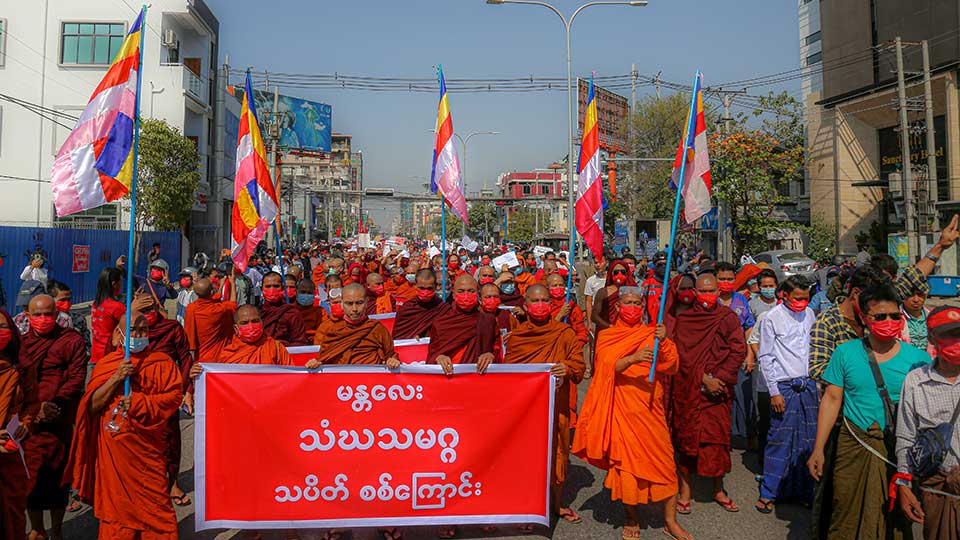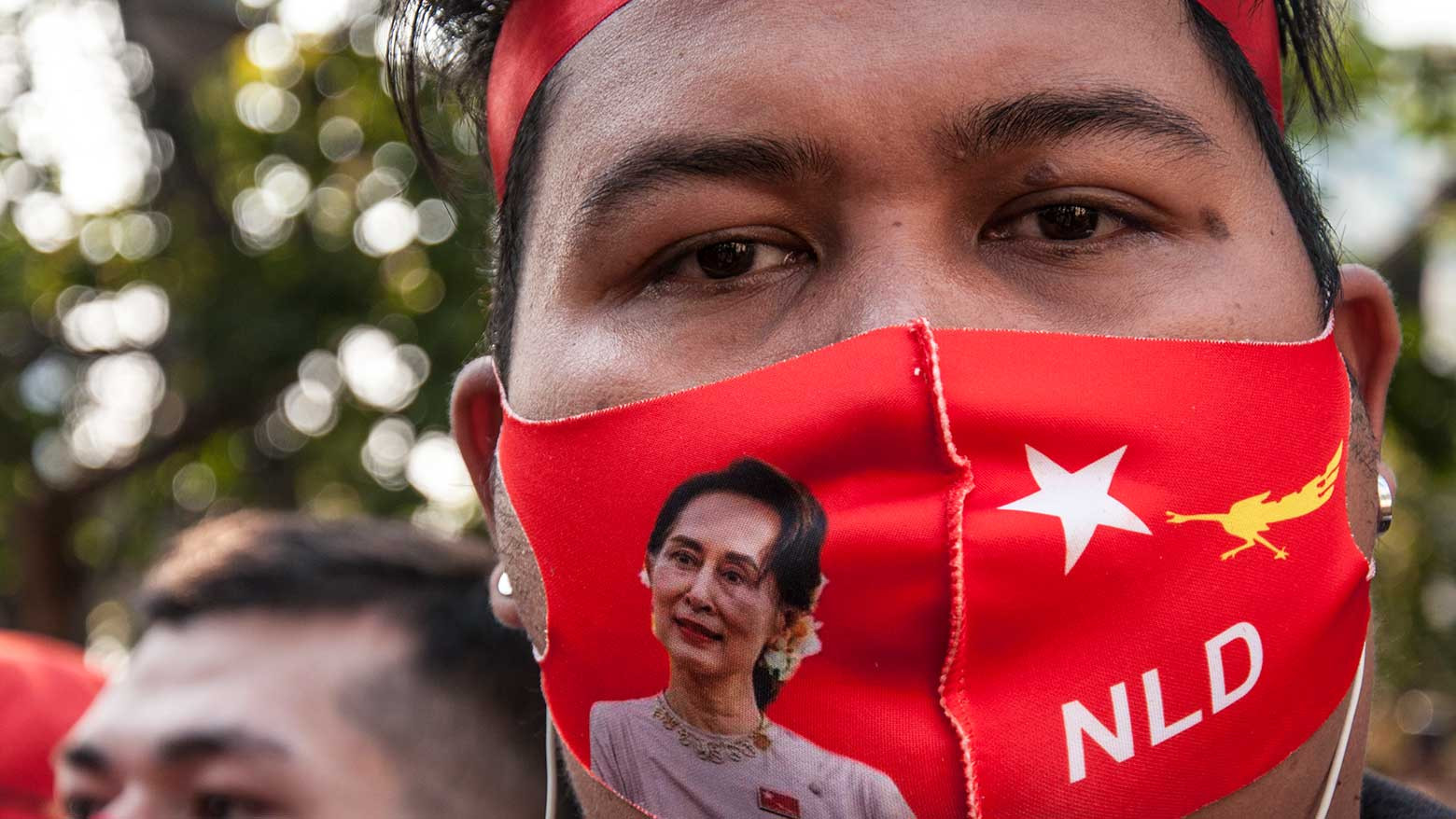A lawmaker with the National League for Democracy party, which enjoyed a landslide victory in November, says the general even told reporters that the military needed to seize power.
“Three to four days before February 1, it was clear from Min Aung Hlaing’s interview about the election that there would be a coup. I want to stress that we knew they would use the result of the vote to do it,” she says.
NLD lawmakers were detained en masse – including President Win Myint and de facto leader Aung San Suu Kyi. Dr. Khin Zaw Win, director of the Tampadipa Institute think tank, says negotiations between the military and the government got underway two days before the power grab.
“(Aung San Suu Kyi) did not accept the military’s requests and demands. The military then said it would stage a coup. The leaders of both sides know they should have been able to reach a political settlement,” he says. The military leaders say they were forced to act because of election fraud, something the country’s electoral commission disputes, and about which Dr. Khin Zaw Win says “a child could see that the military trumped up the charges. They’ve done this before, over many years.”
Authorities open fire
People in Myanmar started protesting immediately. First, they banged pots and pans through the night, then they took to the streets in their tens of thousands when authorities suspended the internet. People have been giving three-finger salutes, a gesture that originated in the “Hunger Games” movies, but came to signify resistance in Thailand, which experienced a coup a decade ago.
On February 9, security forces in the capital, Naypyitaw, reportedly fired live rounds at the crowds. Some people were injured, one critically. In the central city of Mandalay, 30 were detained, including journalists.
Phil Robertson, the deputy director of Human Rights Watch in Asia, suggests NGO workers and journalists have gone into hiding because they are listed as targets for surveillance and possible arrest.

US, China take opposite stances
Myanmar is now under a state of emergency. That’s slated to last for a year, and the new leaders have promised a general election six months after that.
US President Joe Biden has announced sanctions against Myanmar’s military leaders and a number of related companies. New Zealand Prime Minister Jacinda Ardern has said her country will suspend all high-level political and military contact. The UN Security Council has called for the immediate release of those detained, including Aung San Suu Kyi.
China, on the other hand, has said it will not interfere in the domestic affairs of Myanmar. Beijing has long enjoyed close ties to the country and sees Myanmar as a vital part of its Belt and Road Initiative.
The Association of Southeast Asian Nations is divided on the issue. The leaders of Indonesia and Malaysia have called for a special meeting of the bloc’s foreign ministers, but ASEAN itself maintains a policy of not interfering in the internal affairs of its members. Thai Prime Minister Prayut Chan-o-cha has been understandably reluctant to condemn the events across his border. He led the coup in 2014 in Thailand and won an election five years later.
What next?
Four-hundred NLD members, mainly lawmakers, were released two days after the coup, but others, including Aung San Suu Kyi, remain under house arrest. She faces accusations of illegally importing and using hand-held radios. Her detention was expected to end on February 17, but it has been extended with an additional charge.
The military hasn’t said why that would be a concern, and it is an unlikely reason to depose a government, but the country only recently dubbed Asia’s “last frontier” is back under military control, and more than a few people saw it coming.

